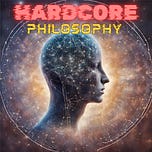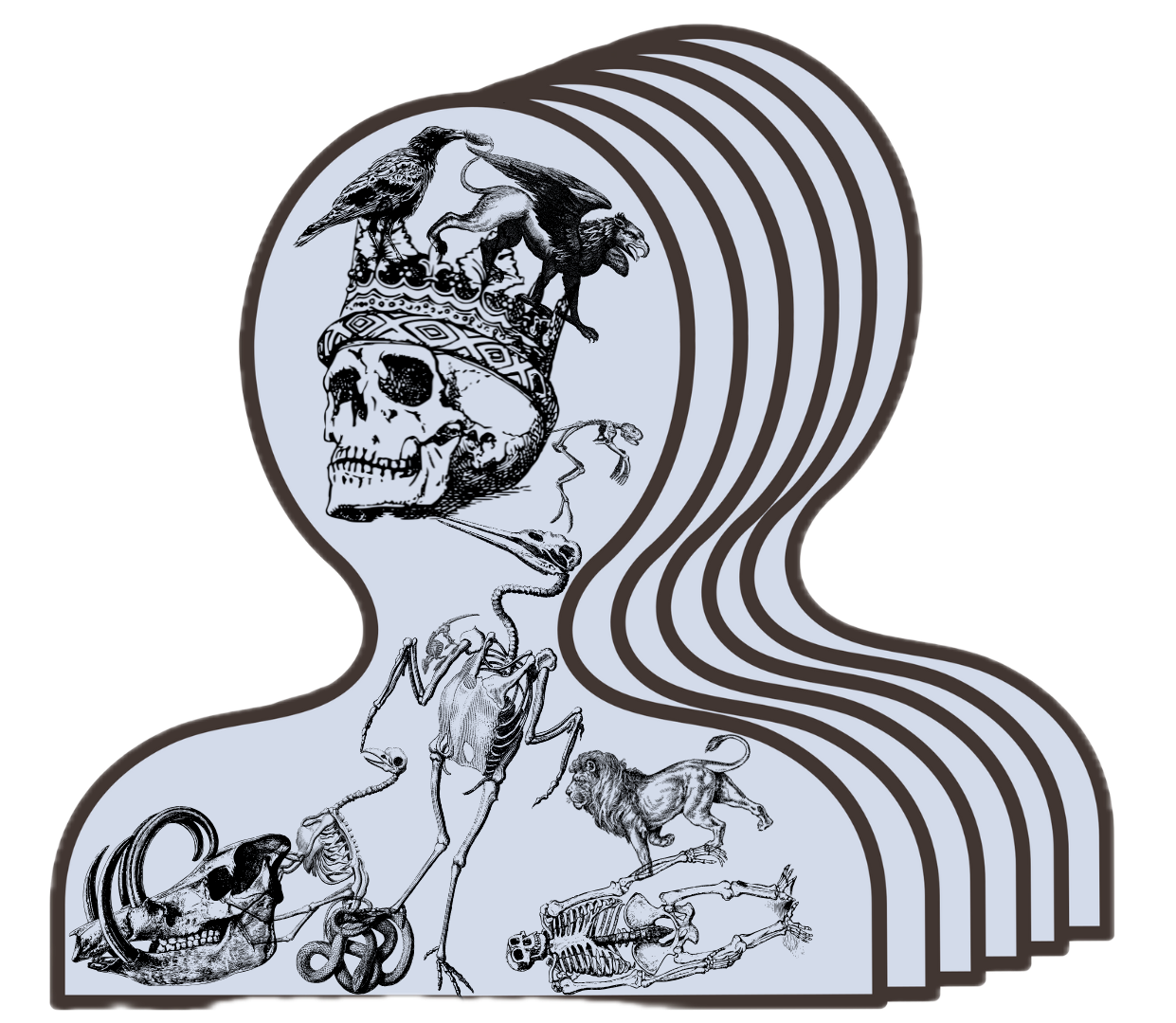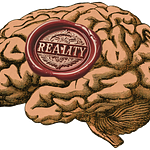IN A PREVIOUS POST I speculated that selfhood could be the result of a partial failure to participate in a primordial unity. Consider this an hypothesis (from the Greek ὑπόθεσις, meaning under placing or foundation), a mythological account, or a “likely story”.
I realize it might seem strange to begin with grandiose cosmic speculations. Most people start with, well, us. With our consciousness, our mind, our “phenomenal” experience, as they say, since this is what we know most intimately. While I basically agree with the phenomenal holists about this and the unitary nature of experience, I don’t think that necessarily means we’re metaphysically simple subjects either.
Physicalists often attempt to undermine unity by attacking self knowledge through introspection—you may feel like a unified self, but you can be mistaken! Since the physical is by nature composite, it makes sense that they would want consciousness to be composite too. Still, it’s not like they’re arguing for constitutive panpsychism or some ancient form of idealism. No, they wouldn’t like that at all. But…
Why not? As Eric Schwitzgebel argues in The Weirdness of the World, “if materialism is true, the most natural thing to conclude is that the United States is conscious.” I think he’s got a point. Anyway, if you bite the bullet, you’ll be in good company because you know who thinks the United States is conscious? Plato! Okay so maybe not the United States, exactly, since, well, you know. And maybe not conscious in our phenomenal-what-it’s-like sense of that word—but alive! 1
I find it strange that Plato almost never gets brought up in these mereological discussions given that he was obsessed with conundrums involving whole-parts relations. If we want to find out whether nested minds are possible without destroying the unity of the self, well, that question lies at the heart of the Republic.
Get ready to be tossed about, my friends, for we are voyaging into the open seas!
I’m quoting from this translation by Tom Griffith: The Republic
An ever-changing, many-headed beast
‘Start with a single species, then. A complex, many-headed beast, with a ring of animal heads—some gentle, some fierce—which it can vary and produce out of itself.’
‘It sounds like a job for a skilled sculptor,’ he said. ‘Still, words are easier to shape than wax and things like that, so consider the model made.’
‘For your second single species, make a lion. And for your third, a man. And let the first creature be much the biggest, followed by the second.’
‘That’s easier,’ he said. ‘Look, they are made.’
‘Now join the three of them into one, so that they’ve grown into one another in some way.’
‘There they are,’ he said. ‘Joined.’
‘Enclose them in the external appearance of one of the creatures—that of the human being—so that to those who see only the outer shell, and can’t see the inside, it looks like a single living creature. Like a human being, in fact.’ (588 c-e.)
THIS IS WHAT A TYRANT’S SOUL looks like, according to Socrates. A tyrant has a deceptively normal human exterior, but an ever-changing, multi-headed beast inside it which is itself conjoined to both a lion and a human. Now don’t get distracted by the many-headed beast. Focus on the little human. Does that also have a beast, a lion, and another human inside it? And so on? Do we face an infinite regress? Probably so, since Socrates is trying to show that, despite the external appearance of a coherent unified human, the tyrant hides a deeply fractured and incoherent nature within.
On the other hand, it’s not clear that any configuration of the tripartite soul2 described in the Republic, not even the supposedly stable soul of the philosopher king, can escape serious structural problems. Perhaps all souls require “a skilled sculptor”.
Can the contained contain the container?
THE CITY-SOUL ANALOGY, the main project of the Republic, has us compare the three parts of a single human soul—reason, spiritedness, and desire3—to the classes within a city which are characterized in the same way. But this analogy seems to face problems that go beyond an infinite regress of mini mes. Beyond the elitism of philosopher king totalitarianism too.
Everything hinges on a simple definition of justice: Mind your own business.4 The general rule for the three classes of society and the three parts of the soul is that each part should do its own thing and avoid interfering with the functioning of the other parts. Fair enough. We’ll call this the mind your own business rule. After proposing the city-soul analogy Socrates asks:
‘Do we have no choice but to agree that in each of us are found the same elements and characteristics as are found in the city? After all, where else could the city have got them from? It would be ludicrous to imagine that the spirited element in cities has come into being from anywhere other than the individual citizens…(435e-436a).
Not terribly controversial. Individual citizens add up to make the whole city. It’s not like the individuals could derive their character from the city, since the city wouldn’t exist without the citizens that make it up. If the citizens are rational individuals, the city as a whole would have a rational character. This seems fairly obvious, right?
But if we follow the mind your own business rule at the scale of the city, doing so inevitably breaks the rule at the scale of the individual and vice versa.5 Reason must rule over the city as wise philosopher kings to achieve justice, but this necessitates that no individual member of the warrior or working class can, as individuals, be ruled by their own reason. The warriors must be ruled by their own spiritedness and the workers must be ruled by their appetitive desires—this is what the mind your own business rule demands. So it turns out that justice fails at one scale the moment it’s achieved at the other; they’re mutually exclusive.
At the beginning of Book 4, Adeimantus seems to catch a whiff of this problem, or at least something like it, when he lodges a complaint on behalf of the guardians of the city, who “unlike the others, receive no pay over and above their food”. In response to this, Socrates reiterates the point that we are only concerned with the whole, not the parts:
“We shall say that we wouldn’t be at all surprised if even our guardians were best off like this,6 but that in any case our aim in founding the city is not to make one group outstandingly happy, but to make the whole city as happy as possible.”
But then what’s the analogy supposed to show? We might suppose the lower and middle classes can be ruled by reason too, just to a lesser degree than the philosopher kings. But this doesn’t seem to help much since it’s still true that insofar as one scale is ruled by reason, the other scale is not. The two scales just don’t get along. It appears as though the analogy collapses under its own weight.
Maybe so. But consider the method of inquiry Socrates lays out in the beginning:
‘The enquiry we are undertaking is not a simple matter. If you ask me, it requires sharp eyesight. And since we are not clever people, I think we should conduct our search in the same sort of way as we would if our eyesight were not very good, and we were told to read some small writing from a bit of a distance away, and then one of us realised that a larger copy of the same writing, apparently, was to be found somewhere else, on some larger surface. We would regard it as a stroke of luck, I think, to be able to read the large letters first, and then turn our attention to the small ones, to see if they really did say the same thing.’ … ‘We say that there is justice in an individual; but also, I take it, justice in a whole city?’ (368 c- d)
Socrates compares the city-soul analogy to reading different sizes of print. But it’s not clear from this description how the larger writing could help us make out the smaller since we’d have to know what the smaller writing says in advance to know it was saying the same thing as the larger. Maybe he meant we’re supposed to read some part of the smaller writing and if we see the same passage in the larger writing, we can then assume the larger says the same thing as the smaller.
Problems involving partial knowledge are another of Plato’s obsessions. Here he seems to be signaling that we need to make room for half truths and stop thinking in black and white, either/or terms. We can’t come at this problem with the blunt tool of static logic. The law of non-contradiction won’t do.7 We must rely on what we have at our disposal, our blurry instincts, unreliable intuitions, and partial insights—perhaps even recollections of what we may have once known, recollections that come from who knows where—rather than trying to analyze everything to death. Once we allow for a more fluid and dynamic mode of thought, we might take a step back from scales and sizes to consider the comparison of the soul to writing. In what way is a soul similar to the written word? On the face of it, they don’t seem alike at all. The written word is visible and stationary, whereas souls are invisible and dynamic. But we’ve seen this kind of comparison before. It’s reminiscent of the allegory of the cave, where the sunlight outside the cave visually represents an invisible “light” emanating from the Good. What’s interesting about the written word is not the physical marks themselves, but the invisible message those marks point to.
When Socrates later reminds us of the method of comparison we started with, he adds something interesting:
‘We thought if we started with some large object which had justice in it, and tried to observe justice there, that would make it easier to see what justice was like in the individual. We chose a city as this large object, and that’s why we founded the best city we could, in the confident belief that it is in the good city that justice is to be found. Now let us apply our findings there to the individual. If they agree, well and good. If we come to some other conclusion about the individual, then we shall go back to the city again, and test it on that. If we look at the two side by side, perhaps we can get a spark from them. Like rubbing dry sticks together. If that makes justice appear, we shall have confirmed it to our satisfaction.’ (434 d-435a)
He proposes we first look at the city, then the soul. If all goes well, fine. If not, back to the city. Maybe in this directive we find an acknowledgement of the temporal nature of our mental processes. Just as we can’t focus on both a forest and its trees at the same time, there’s an intentionality or directed-ness to our experience that makes it impossible to take in both scales at once. At any given moment we can only focus on one to the exclusion of the other, even though, presumably, we’re always considering the same thing.
Presumably. While all of this is suggestive, it doesn’t quite resolve the problem. The justice of the city and that of the soul remain mutually exclusive. And in the last part of the quote above, Socrates says we are to look at the city and the soul side by side, which seems to go against the idea that looking at them exclusively to one another will give us some idea of justice that pertains to both.
But notice, he also says looking at them side by side is like rubbing dry sticks together. What happens when you rub sticks together? You create friction, and friction may generate sparks. There’s another kind of back and forth that does the same thing—a dialectical exchange. And if we know anything about Platonic dialogues, they almost always end in aporia, or puzzlement. So maybe this is Plato’s way of hinting to us that the city-soul analogy is not supposed to hold up! Maybe it’s supposed to reveal a deep “unfriendliness” between scales, demonstrating that justice only applies to one scale or another, not both. Socrates once said, The true champion of justice would do well to stay away from politics. Could he have meant that justice is possible only in individuals, and that social life destroys the harmony of the soul?8
I doubt it. Socrates famously refused to escape prison, claiming he owed his life to Athens. That’s typical Socrates for you. He would never say justice is antisocial! He’s the most social dude of all! And bit of a busybody too, a gadfly always buzzing about in public spaces looking for someone to annoy. But maybe it was Plato who believed the political life destroys the soul. Given the political turmoil and violence he witnessed during his life, that would make sense. On the other hand, he did spend a lot of time trying to persuade us to believe that social justice is good for its own sake. So it’s hard to believe antisocial individualism is the takeaway message here. Which means the city-soul analogy can’t just cause friction. Friction must generate sparks for a reason…
All is quiet when you’re ruled by philosopher kings
FIRE IS A POTENT IMAGE throughout the Republic—everyone remembers the allegory of the cave, after all. The light from the fire inside the cave9 gives being to the shadows on the wall and makes them known. Which is to say, fire exhibits a potency over and above that which it illuminates. Let us suppose, then, that the friction generated by the analogy is meant to spark an insight into justice ‘over and above’ in some other way.
‘So this principle, Glaucon — that if you are a shoemaker by nature, you should confine yourself to making shoes, if you are a carpenter you should confine yourself to carpentry, and so on - really was a kind of image of justice. Which is why it was so useful to us.’
‘Apparently so.’
‘But the truth is that although justice apparently was something of this kind, it was not concerned with the external performance of a man’s own function, but with the internal performance of it, with his true self and his own true function, forbidding each of the elements within him to perform tasks other than its own, and not allowing the classes of thing within his soul to interfere with one another. He has, quite literally, to put his own house in order, being himself his own ruler, mentor and friend, and tuning the three elements just like three fixed points in a musical scale, top, bottom and intermediate. And if there turn out to be any intervening elements, he must combine them all, and emerge as a perfect unity of diverse elements, self-disciplined and in harmony with himself. Only then does he act, whether it is a question of making money, or taking care of his body, or some political action, or contractual agreements with private individuals. In all these situations he believes and declares that a just and good action is one which preserves or brings about this state of mind, and that wisdom is the knowledge which directs the action. That an unjust action, in its turn, is any action which tends to destroy this state of mind, and that ignorance is the opinion which directs the unjust action.’ (443-444)
While the Republic can be seen as both a political and psychological work, here we’re reminded of the scope of its initial project, which was to illustrate justice within the soul. As Socrates explains it, we have drawn a larger image of justice—just as writing is an image pointing to some meaning outside itself—and this image reflects on the inner workings of the soul, not on its outer functional performance. When reason leads the soul, all its parts act with one purpose, one mind. Then and only then should the individual seek social justice—what this looks like is left open.
Let’s go back to our original question of whether nested minds are possible without destroying unity.
Plato’s harmony of the soul is significantly different from the Kantian transcendental unity I talked about in a previous post. Transcendental unity only takes account of itself at a given instant. From the self-reflected instant we extrapolate the necessity of its operation throughout all instances of time. But this is a rather sparse account of ‘what it’s like’. Plato’s “state of mind”10 is similarly static, but like a sign pointing away from itself, he invites us to explore hidden layers lurking beneath the philosopher’s austere deductions. A philosopher does not like to speculate, but a poet has no such qualms. Luckily for us, Plato is both. With the philosopher-poet, we are free to wander and wonder.
When the parts of you harmonize, they act as though they were a single state of mind. For instance, let’s say you’ve just come back from a lovely walk, had a healthy but decidedly yummy lunch, and now your appetite (lower desires) is moderately satiated and thinking about taking a nap and you’re working on a project you love, you’re immersed in it, you’re in a state of flow and your thumos is feeling fairly good about the moderate praise it will receive from you for keeping quiet and letting you work in peace—maybe in such moments you get a glimpse of ‘what it’s like’ to be ruled by philosopher kings. It’s hard to say what it’s like, though, isn’t it? All you know, you know in retrospect. When it ended, you couldn’t believe how much time had passed. Of course the transcendental unity of apperception was there all along, but only in theory. In an experiential sense, it was nowhere to be found.
All is quiet when you’re ruled by philosopher kings. Maybe when the collective “you” goes to bed at night, the various parts within your soul scatter and talk amongst themselves and hold secret meetings behind closed doors. If you listen hard, you might overhear them in your dreams from time to time. Who knows? Maybe they’re praising your wise and benevolent leadership…but no. In that case you won’t hear a thing! Your mini mes are cranky bastards and you’ll only hear them if they’re talking smack about what a fascist pig you are.
A dreamless sleep is nothing to be afraid of!
BUT WAIT A MINUTE. So far we have only seen one side of the equation, the harmony of the soul. Plato seems to suggest that social justice can be found only after this harmony is achieved, but that it’s not logically incoherent to go looking for justice on a larger scale. So suppose a soul succeeds in being ruled by the philosopher kings within, what sort of social justice can this rational soul expect? Does it have to wait around for everyone else to get their houses in order? Is social justice even possible?
We’ll look at these issues in the next post.
WHAT DO YOU THINK?
The music in this podcast episode by Nick Herman. Purchase the full album on Bandcamp. Support indie artists!
To get full access to my published books and posts, upgrade your subscription. Find out more. You can customize which bits of this newsletter you receive by visiting your account.
Thanks for supporting my niche literary endeavors and off-beat philosophical speculations. Cheers!
—Tina Lee Forsee
To be alive, to move oneself, to have desire…
To spin around in circles gathering “dead” skin cells…to re-create oneself again and again…
(No sound in videos above.)
WTF is a xenobot?
But life is seen most clearly by contrast. In death, self-motion comes to a sudden stop…
The death of a form of life such as this is quite dramatic. You actually can see its selfhood boundaries dissolve away. And yet, “just chemicals” can apparently exhibit learning behavior too. See the presentation in the link below for details.
All three video clips are screenshots from Michael Levin’s presentation, Unconventional Embodiments of Consciousness: a diverse intelligence research program.
The logos (λογιστικόν), or logistikon, located in the head, is related to reason and regulates the other parts.
The thymos (θυμοειδές), or thumoeides, located near the chest region, is related to spirit according to some translations, or emotion. I prefer emotion, but I went with the more standard translation. Here is a good justification for emotion. Emotions would include things like indignation, loyalty, outrage, jealousy, protectiveness, pride, all of which deal with what we might today call ego.
The eros (ἐπιθυμητικόν), or epithumetikon, located in the stomach, is related to one's desires or—better yet—cravings. See link above for details. These cravings or desires are more associated with the body such as pain, hunger, sexual desire.
Locations in the body for each part of the soul are described in the Timaeus.
Clearly Freud was inspired by Plato’s model when he came up with his Superego, Ego, Id.
See Book 4, 434c. “Mind your own business” was a popular slogan in ancient Athens, and it meant something like the opposite of being a busybody. Athens was a highly litigious society, and those who “minded their own business” and refrained from suing others were apparently praised for it. You’ll find the phrase in Pericles’ funeral oration as well. Here Plato seems to be playing with the phrase, uncovering its more technical meaning as ‘functional specialization’ while highlighting its more popular positive connotations—connotations that are likely lost on us today.
Bernard Williams is often cited for pointing this out. Unfortunately his article is paywalled.
Hint, hint.
In Book IV, part 4 of the Republic, Socrates states: "It is obvious that the same thing will never do or suffer opposites in the same respect in relation to the same thing and at the same time." This is an example of Plato's principle of non-contradiction. The point I’m making here is not that Plato wants us to violate the principle, but instead that he’s asking us to keep investigating beyond the apparent contradiction. In several places throughout the dialogue he seems to be warning us not to think he’s violating the principle, as if to say he’s aware that we may mistakenly think he is.
NEW: After publishing this post I came across a video of a lecturer at St. John’s College who agrees with me on many points here, and he adds interesting evidence that I was not privy to. He says that in the original Greek, Socrates always consistently refers to the private justice as “doing one’s own things”, plural, but when he talks about social justice, he refers to “doing one’s own thing”, singular. Apparently no English translation preserves this consistent use of the singular/plural that would be obvious in the original Greek. Though the lecturer didn’t mention this, it seems to me the point Socrates makes about comparing large and small letters would in this case likely a clue that means, “Pay attention to the letters!” Perhaps this is his way of warning the reader of the mutual exclusion of the two scales of justice.
Where I part ways with the lecturer’s interpretation is where I’ve put this footnote. I asked, “Could Socrates have meant that justice is possible only in individuals, and that social life destroys the harmony of the soul?” The lecturer concludes yes, Socrates does mean true justice can only be found in the just individual. Indeed, Socrates does say this, but his prioritization of the individual is not absolute (as you’ll see later if you haven’t read the entire post yet.) The lecturer also cites the reluctance of the philosopher king to rule as evidence in support of his conclusion. The philosopher king will agree to rule, of course, but will be reluctant precisely because the justice at the scale of the city is a lie (related to the noble lie); the philosopher king knows this is only a “phantomly” just city and the individual’s justice is not compatible with it. I agree with this interpretation insofar as it shines light on the incompatibility of the two scales of justice, but not with the lecturer’s conclusion that Socrates thinks true justice—the fire that bursts forth from the friction of dialectical comparison—lies essentially in the individual. I think Socrates’ actions of refusing to flee prison could be interpreted as his acting according to a higher idea of justice, one that perhaps unites the justice of the individual with that of every larger scale; his north star is not any model found on earth. That possibility should be taken seriously.
The lecturer doesn’t mention the City of Pigs or the passage about the biological ideal, which I think are clues pointing to a much higher form of justice that the just individual and just city can only approximate. There is a hierarchy of justice in these examples: Kallipolis is a lesser form of justice than the City of Pigs which is a lesser form of justice than the philosopher king’s soul which is a lesser form of justice than an uncomplicated animal’s soul (a pig, for instance), which is a lesser form of justice than biological unity (described above). But even here we have not gone far enough. Through these examples we see that unity is where all of these lesser forms are heading. The purest form of justice, then, lives one step below the total obliteration of the self into the community. Why one step below, why not unity itself? Because inherent to the meaning of justice is the comparison of two entities. So we arrive at a somewhat paradoxical conclusion here: perfect justice inherently falls short of perfect unity, which is the ideal to which all the lesser forms are heading. The highest form of justice will be two entities that can only barely be called entities—their “twoness” should only barely be discernible—which are at the very tippy toppy tipping point of collapsing into one.
The video begins at the part where the lecturer correctly points to friction as the key to discovering what is meant by justice in the Republic. I just think the lecturer didn’t go far enough in analyzing the nature of the fire metaphor, with fire being “over and above” the state we find ourselves in here on earth.
Why is there a fire inside the cave? Having a fire burning inside an enclosed space would be dangerous for the prisoners, and anyway, as a symbol it seems excessive. Wouldn’t it make more sense to construct the metaphor so that sunlight penetrates into the cave from some opening to the outside? Wouldn’t that make it clearer that the Good is the cause of everything? BUT I think Plato did this for a reason. The difference between light from fire and light from the sun represents a sharp transition from the visible realm to the invisible realm. Plato needed an image that exhibits a distinct separation of those realms, but not a total discontinuity. It must be possible to move from the visible to the invisible, in other words, while at the same time indicating the difficulty in this movement. Fire is an image that simultaneously separates us from the higher realm of sunlight by virtue of its coming from a different physical source while at the same time providing a bridge for us to get to it by virtue of its similarity in providing light. These two mirror the point being made at a larger scale: Sunlight and firelight are both “truth-like” by virtue of being light, but because they’re physical they’re different from the “light of truth” that comes from the Good; at each level the things being compared are both similar in one respect and different in another. This kind of transition is echoed everywhere in the Platonic dialogues, and the point of it is to make you uncertain and thereby prompt you to investigate further. The same sort of paradoxical transition can be found in the equality of the middle segments of the divided line, as well as when Aristophanes gets the hiccups and switches places with Eryximachus in the Symposium, and many more places besides these I’m sure, but I’ll have to leave that for another time.
Another translation of this passage which I like better than “state of mind”: “becoming a friend to himself, and harmonising the three elements which are really like the three defining notes of the musical scale, the highest, lowest and middle, and any others that are in between. Having bound all these together from many, he becomes entirely one, sound-minded and harmonious. Then, and only then, does he proceed to act if any action is needed, either in the acquisition of wealth, the care of the body, or indeed in civic affairs or private contracts.”












